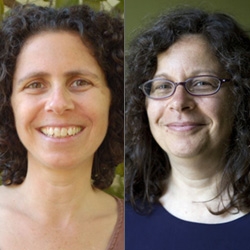

Search Results: connection
-
NVC can be seen as a restorative practice that reconnects us with life, trust, and the experience of mattering.
-
Trainer Tip: Do you sometimes feel lonely and disconnected from others? If so, look at how you may be participating in supporting that outcome and what you can do differently. For instance, if you want support or connection - but prioritize looking composed no matter how sad, hurt or angry you feel, you may shield yourself from authentically and vulnerably asking those things. Instead, make those requests.
-
Prioritize connection before solutions by understanding each other's needs first.
-
Try this four step exercise for making connection requests to support understanding, and to learn what effect your words had on the listener. In this exercise you'll choose a situation where you have clarity about what outcome will really work for you (your solution request), but where you imagine your desired outcome may not work for the other person, and/or are not sure there is sufficient connection for mutual trust.
-
Rodger Sorrow introduces us to "Connection Time," a practice for you and a significant other to deepen, broaden and mend your relationship with each other.
-
Trainer Tip: Tap into feelings, needs and requests for greater self connection with the six steps in this worksheet.
-
One way of simplifying decision-making in relationships is clarity about the level of contact and connection you want with the people you interact with. This means knowing what you want and don’t want to share, the kinds of activities you do and don’t do together, how often, etc. This can help you chose how to best support your needs in that context, and help you to remember to set life-serving boundaries when you need them.
-
-
Exploring how to connect with your reasons for offering empathy when someone shares pain.
-
Ask the Trainer: My question is about wanting to empathize more with my husband. Sometimes we connect very deeply, other times he slips back into "jackal talk..."
-
By guessing our child's feelings and needs we open the door to understanding what's behind their behavior, and can better suggest solutions that meet both their and our own needs. In this way we build trust and their desire to seek us out in times of need. Expressing our own feelings and needs also allows us to help them understand the value in fulfilling tasks or requests.
-
By guessing our child's feelings and needs we open the door to understanding what's behind their behavior, and can better suggest solutions that meet both their and our own needs. In this way we build trust and their desire to seek us out in times of need. Expressing our own feelings and needs also allows us to help them understand the value in fulfilling tasks or requests.
-
When working to repair a relationship after conflict, and after reaching mutual care and understanding, you’re more likely to prevent future disconnection in similar situations by coming to clear, specific, and actionable agreements. Ensure requests for agreements come from a negotiable needs-based dialogue. Clarify specifics and plan to revisit agreements to assess their effectiveness.
-
Trainer Tip: We have a better chance of getting our needs met if we prioritize connecting with one another's needs more than being right. This way we can reduce the chances of conflict arising. We also increase the possibility we can find ways everyone’s needs can be met.
-
Discover how fostering strong attachment and connection with your child can lead to fewer conflicts and more harmonious interactions. Ingrid Bauer offers practical guidance on using empathy, self-connection, and consistent care to create a secure and loving environment for your child.
-
Jim Manske offers practices to stay in dialogue without defensiveness, especially when it's difficult. Listen to Jim discuss the refining of our commitment to connection and how to respond to others' defensiveness too.
-
Trainer Tip: We can expand our connection to humanity by considering the many strategies people use to meet our common needs.
-
Explore NVC's role in transforming power dynamics and bridging social divides.
-
Trainer Tip: When we connect our feelings to our needs, we put ourselves in a postion to get our needs met and mourn when they aren't met. Here's a practical tip you can practice daily to improve the quality of your life.
-
Ask the Trainer: Finding ease and authenticity when writing to someone with cancer.
Quick Links

Stay in Touch!
We value your privacy, won't share your email address and you can easily unsubscribe any time.



















